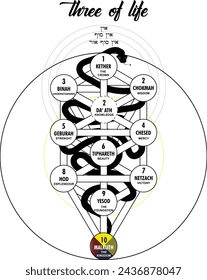Chesed, The Sphere of Loving-Kindness and Its Correspondences

This sphere, the fourth sefirah on the Tree of Life in Kabbalah, represents boundless love, kindness, and expansion. This divine attribute embodies generosity, mercy, and an open heart. Understanding this sphere helps one cultivate compassion, harmony, and balance in life.
The Essence of Chesed
This sphere stands for unconditional love and benevolence. It reflects divine giving without limitations, like an endless stream of kindness. Rooted in the right pillar of the Tree of Life, it counterbalances the strictness of Gevurah, which represents discipline and judgment. Together, they create a necessary equilibrium.
In the soul, Chesed manifests as the desire to give, uplift, and support others. It fosters relationships, unity, and trust. A person who embodies Chesed naturally spreads warmth and understanding in all interactions.
Correspondences of Chesed
Divine Name:
- The name of God associated with this sphere is El, symbolizing divine mercy and strength through kindness.
Archangel:
- Tzadkiel governs this sphere, guiding acts of charity, grace, and benevolence.
Planetary Influence:
- Jupiter, the planet of expansion, wisdom, and abundance, aligns perfectly with Chesed’s energy of generosity and kindness.
Color Correspondence:
- Blue represents this sphere, evoking peace, harmony, and divine love.
Elemental Association:
- Water symbolizes Chesed’s flowing and nurturing nature, always moving and sustaining life.
Virtue and Vice:
- The virtue of this sphere is charity, while its imbalance can lead to extravagance or overindulgence.
Symbolism:
- The scepter and staff represent authority used wisely with kindness and justice.
Spiritual Practices to Cultivate Chesed:
- Acts of kindness and charity
- Meditation on divine love
- Fostering gratitude and generosity
- Strengthening faith in abundance
Balancing Chesed in Daily Life
While this sphere inspires kindness, unchecked giving can lead to imbalance. Without boundaries, one may become overly lenient or indulgent. To maintain harmony, Gevurah’s discipline must counteract Chesed’s boundless nature. Practicing self-care and discernment ensures healthy generosity.
Conclusion
Chesed teaches the power of love, compassion, and generosity. It reminds us to give freely while maintaining balance. Aligning with its energy brings harmony to the soul and strengthens spiritual growth. By embracing Chesed, one connects deeply with divine love and spreads kindness in the world.

